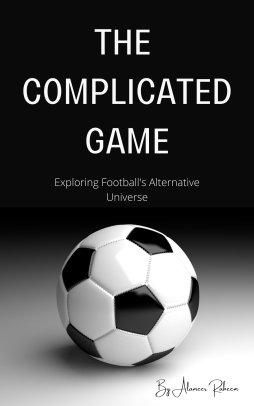
In the grand tapestry of history, few stories capture the absurd magic of accidental genius quite like that of George Dantzig. One seemingly mundane day in 1939, Dantzig, a first-year PhD student at the University of California, overslept and arrived late to his statistics lecture. Too embarrassed to make his presence known, he quietly copied down the two equations scrawled on the board, assuming they were the assigned homework.
Dantzig, a dedicated student, spent the next few days wrestling with the equations. They were challenging—far tougher than usual—but he refused to be defeated. After intense effort, he finally solved them and handed them to his professor, apologizing for taking longer than expected. His professor stared at him, wide-eyed, and dropped a bombshell:
“George, my dear boy, that wasn’t homework… those were two famously unsolvable statistical problems.”
Dantzig had cracked mathematical conundrums that had eluded statisticians for years—all because he didn’t know they were impossible to solve.
The Unstoppable Force of Ignorance
Had Dantzig been aware of the status of those equations, would he have even tried? Probably not. He would have assumed that if the brightest minds couldn’t solve them, neither could he. But his ignorance shielded him from self-doubt and the weight of history. He approached the problems with fresh eyes, unwavering effort, and—most importantly—without the mental chains of failure.
This phenomenon, often called “The Courage of Ignorance,” plays out in unexpected ways across various fields—including sports. Think about a newly appointed coach stepping into the world’s most competitive football league, the English Premier League (EPL). Unlike seasoned veterans who are acutely aware of the immense challenges, the newcomer isn’t burdened by fear. He sees opportunities where others see dead ends.
Football’s Version of Dantzig’s Miracle
In football, knowledge is power—but ignorance can sometimes be an even greater asset. A fresh-faced manager stepping into the Premier League might not know the league’s unspoken “rules.” He doesn’t carry the baggage of past failures, doesn’t fear teams historically labeled as unbeatable, and doesn’t hesitate to implement daring tactics that conventional wisdom might discourage.
This effect becomes even more pronounced in a pressure-cooker league like the EPL, where established managers are constantly scrutinized, and tactical innovations are often stifled by the fear of job security. A newcomer, however, walks in like a child at a carnival—unfazed, experimental, and blissfully unaware of the supposed limitations. And sometimes, just like Dantzig, they end up pulling off the impossible simply because they didn’t realize they weren’t supposed to.
Shifting the Mindset: Can Ignorance Be a Strategy?
While no one is advocating for recklessness or a lack of preparation, there’s something to be said about approaching challenges with a beginner’s mindset. When we overanalyze, we often talk ourselves out of bold moves. What if, instead, we embraced the unknown and saw obstacles not as insurmountable but merely as puzzles waiting to be solved?
For managers in football and professionals in any field, perhaps the key to breakthroughs isn’t always about knowing more—it’s sometimes about knowing less. Because when you don’t know what you can’t do, you just might end up doing it.
In Conclusion
The story of George Dantzig is a testament to the unexpected power of ignorance. Whether in mathematics, football, or any field, the courage to attempt the impossible often stems from simply not knowing it’s impossible in the first place. By embracing uncertainty and challenging limitations, individuals and teams can unlock levels of success they never imagined. So, the next time you face an insurmountable challenge, consider the possibility that not knowing you can’t win… might just be the reason you do.